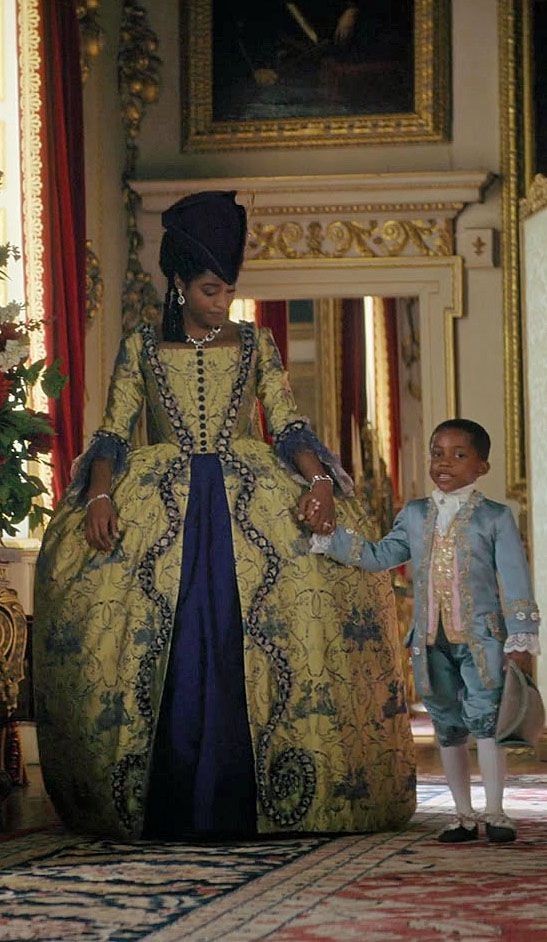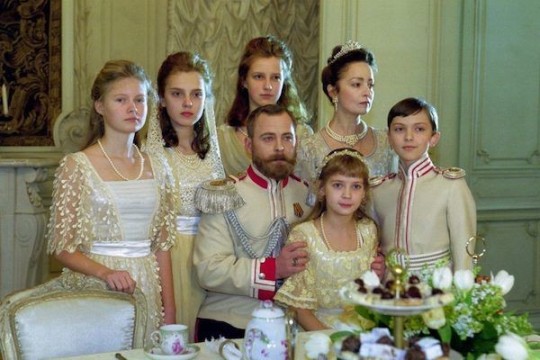Text
Hey btw, another worldbuilding thing: You can, and actually should have weird and impractical cultural things. They’re not inherently unrealistic, for as long as you address the realistic consequences as well.
Let’s say you’ve got a city where there’s tame white doves everywhere. They’re not pests, they’re regarded as sacred, holy protectors of the city, and the whole city cares for them and feeds them like they’re pets. They’re so tame because it’s a social taboo to hurt or scare one. Nice pretty doves :)
Then someone points out that even if they’re not seen as pests, doesn’t having a completely unchecked feral pigeon population - that not only isn’t being culled, but actively fed and cared for - mean that there would be bird shit absolutely all over the place?
A part of you wants to say no, because these are your nice, pretty doves. To explain that there’s a reason why they’re not shitting all over the place, maybe they’re super-intelligent and specifically bred and trained to not shit all over the place. The logistics of how, exactly, could anyone breed and train a flock of feral birds go unaddressed.
An even worse solution would be to not have those birds, editing them out of the world. No, they spark joy, you can’t just toss them out!
Now, consider: Yes, yes they would, but the city also has an extensive public sanitation service that’s occupied 90% of the time by cleaning bird shit off of everything. One of the most common last names in the area actually translates to “one who scrapes off dove shit”, and it’s a highly respected occupation. And thanks to the sheer necessity of constantly regularly cleaning everything, the city enjoys a much higher standard of cleanliness, and less public health issues caused by poor public sanitation.
The doves do protect the city. By shitting fucking everywhere.
151K notes
·
View notes
Text
Good Traits Gone Bad
Exploring good traits gone bad in a novel can add depth and complexity to your characters. Here are a few examples of good traits that can take a negative turn:
1. Empathy turning into manipulation: A character with a strong sense of empathy may use it to manipulate others' emotions and gain an advantage.
2. Confidence becoming arrogance: Excessive confidence can lead to arrogance, where a character belittles others and dismisses their opinions.
3. Ambition turning into obsession: A character's ambition can transform into an unhealthy obsession, causing them to prioritize success at any cost, including sacrificing relationships and moral values.
4. Loyalty becoming blind devotion: Initially loyal, a character may become blindly devoted to a cause or person, disregarding their own well-being and critical thinking.
5. Courage turning into recklessness: A character's courage can morph into reckless behavior, endangering themselves and others due to an overestimation of their abilities.
6. Determination becoming stubbornness: Excessive determination can lead to stubbornness, where a character refuses to consider alternative perspectives or change their course of action, even when it's detrimental.
7. Optimism becoming naivety: Unwavering optimism can transform into naivety, causing a character to overlook dangers or be easily deceived.
8. Protectiveness turning into possessiveness: A character's protective nature can evolve into possessiveness, where they become overly controlling and jealous in relationships.
9. Altruism becoming self-neglect: A character's selflessness may lead to neglecting their own needs and well-being, to the point of self-sacrifice and burnout.
10. Honesty becoming brutal bluntness: A character's commitment to honesty can turn into brutal bluntness, hurting others with harsh and tactless remarks.
These examples demonstrate how even admirable traits can have negative consequences when taken to extremes or used improperly. By exploring the complexities of these traits, you can create compelling and multi-dimensional characters in your novel.
Happy writing!
#honestly the best thing you can do to make a character feel real#is just having their biggest strength and biggest weakness be the same thing#character construction
51K notes
·
View notes
Text
Honestly? My main piece of advice for writing well-rounded characters is to make them a little bit lame. No real living person is 100% cool and suave 100% of the time. Everyone's a little awkward sometimes, or gets too excited about something goofy, or has a silly fear, or laughs about stupid things. Being a bit of a loser is an incurable part of the human condition. Utilize that in your writing.
46K notes
·
View notes
Text
I feel like many people have a fundamental misconception of what unreliable narrator means. It's simply a narrative vehicle not a character flaw, a sign that the character is a bad person. There are also many different types of unreliable narrators in fiction. Being an unreliable narrator doesn't necessarily mean that the character is 'wrong', it definitely doesn't mean that they're wrong about everything even if some aspects in their story are inaccurate, and only some unreliable narrators actively and consciously lie. Stories that have unreliable narrators also tend to deal with perception and memory and they often don't even have one objective truth, just different versions. It reflects real life where we know human memory is highly unreliable and vague and people can interpret same events very differently
25K notes
·
View notes
Text
this may just be me going into overanalysis mode but i feel like the choreography of spellcasting can tell you so much about a magic user. a snap of the fingers, for example, implies confidence, even arrogance, while hands thrust out and straining to the fingertips suggests desperation, throwing one's whole body into the spell as though hoping the physical effort will make a difference. rapid, jerky body language tells you that a spellcaster is passionate and reckless, while graceful, fluid movements demonstrate calm and concentration. some magic users may choose to stomp their feet or clap their hands when casting, channeling power through percussive motion, whilst others may see magic as a tool separate from the self, and focus it through objects like a wand or staff. a new spellcaster just coming into their power may be tentative and slow, but a practiced study of magic will be able to rely on muscle memory to guide them.
31K notes
·
View notes
Text
Just as a reminder you can write entire pieces of JUST exploratory and speculation for your own WIP or story and they don't have to go anywhere. You are not beholden to a character arc or a rising and falling action with a conclusion. Sometimes you just wanna write a side scene with some characters doing some things. Or you need to just need to write what would amount to an academic paper about a certain landscape in your story. Like that's also fine.
Also these things don't need endings. When you finish them they're done. Even if it's in the 'middle' of something. You got out the part you wanted and now you're done and you satisfied the plot bunny demanding blood sacrifice of you writing that specific scene right now. Congrats you're done now.
Don't let the editor in your mind steal your joy of writing your silly little story. The mind editor is the thief of joy.
2K notes
·
View notes
Note
how do i get my character out of the corner i wrote myself in without a dues ex machina😭
How to Not Write Yourself Into a Corner (and How to Write Yourself Out of a Corner if You’re Already In One)

One of a writer’s WORST fears is writing themself into a corner.
It’s easy to write your characters into death-defying situations…but it’s not as easy to write the actual “defying death” part.
Some writers, in their desperation to get their characters out of a bind, employ the use of a Deus Ex Machina, as mentioned by anon:
Deus Ex Machina: (Translates to "god from the machine") A plot device where a seemingly unsolvable situation is fixed by an out-of-the-blue occurrence. The term “deus ex machina” is a reference to Greek plays, when actors playing a god would literally be lowered into the scene via a machine to magically solve any situation.
Unfortunately, this plot device is often ridiculed by readers, cited as a hack-job solution for a writer out of ideas.
How do we avoid this situation, then? Here are some tips and tricks on how to not write yourself into a corner, and how to write yourself out of a corner if you’re already in one!
Note that these tips may not work for everyone, so make sure to use your own intuition as a writer— you know your story best.
1. NIP IT IN THE BUD— OUTLINES ARE KEY!
I’m sorry to all of you pantsers out there, but the key to prevent writing yourself into a corner is to already have an idea of how each scene is going to turn out; don't make a problem without making a solution! If you keep on top of your outline, you should have no worries about writing your characters into a situation they can't get out of it.
It may be easiest to jot down ideas about a couple of scenarios and then select the one that works best, especially when it comes to dire climax scenes that have a lot of moving parts.
Check out my posts below for more in-depth advice about outlining!
How to Outline
Plotting for Pansters and Pantsing for Plotters
This advice, although essential, does require a ton of foresight and time to plan…and if you’ve sought out this post, it may mean that it’s too late for preventative measures. The subsequent tips in this post are going to be for people who are already in the thick of it and need a way to save all of their writing progress.
2. FORESHADOWING IS YOUR FRIEND (AKA “CHEKHOV’S GUN YOUR WAY OUT OF THAT SHIT”)
Foreshadowing: A narrative device wherein a writer gives an advance hint of what is to come later in the story. It helps maintain believability while subverting expectations and making plot twists.
Chekhov’s Gun: A narrative device wherein a seemingly insignificant element or object in the story becomes useful later on. Sometimes used synonymously with foreshadowing, but usually refers to a specific object.
Examples of Foreshadowing/Chekhov’s guns in media:
The 1981 Quarter (Or Extra Life Quarter) in Ready Player One
“Don’t Cross the Streams” in Ghostbusters (1984)
Winchester Rifle Hanging over the Bar in Shaun of the Dead (2004)
The Rita Hayworth Poster in The Shawshank Redemption (1994)
The Water Bottle in Bullet Train (2022)
In my opinion, a Chekhov’s Gun is the more refined twin of the deus ex machina; although it may seem like it comes out of nowhere, observant readers or those who go back into the story will realize that this event was set up from the beginning.
Foreshadowing is the key to turning a deus ex machina into a Chekhov’s Gun. It’s spreading breadcrumbs to maintain believability even when unbelievable things happen.
My advice: plant a line here and there referring to the object/element that will get you out of the corner.
These lines can be about a healing potion that a character carries around to save them when they’re at the brink of death, the fact that the city they’re fighting in often suffers from sinkholes, or that a character has a seemingly useless skill.
However, haphazardly inserting foreshadowing into your story may come across as heavy-handed; make sure it aligns with the narrative beats. Particularly big Chekhov’s Guns, especially ones that “save the day," may require multiple foreshadowing elements.
It can take a lot of work to incorporate the foreshadowing smoothly, so make sure it actually saves you time in comparison to rewriting the whole scenario/plot point.
3. TAKE A BREAK
Sometimes, the solution to your problem may not come to mind because you’re too immersed into the writing process and not thinking of the bigger picture. Or maybe it might just be good old-fashioned writer’s block. Take a step back, reassess, and return with the scene properly re-evaluated. Maybe start a new book or TV show to get some inspiration, or check out one of my posts below!
How to Overcome Writer’s Block
How to Get Inspired to Write and Regain Creativity
4. ASK FOR HELP
Sometimes, it might be best to have another set of eyes on your story! A situation that may seem unsolvable to you may have an obvious solution to a writing buddy.
5. KNOW THAT SOMETIMES RE-WRITING IS NECESSARY

I know this sounds horrible. It’s something that I wouldn’t wish upon any writer.
Sometimes, however, no amount of foreshadowing can get your characters out of the debacle they’ve put themselves in. Either that, or the work that it would take to insert the foreshadowing would be more than it’d take to rewrite the scene or the plot point.
My suggestion would be to search for the last place that you didn't feel lost, and then cut out everything after that.
(NEVER DELETE MAJOR CHUNKS OF YOUR WRITING! ALWAYS CUT IT AND SAVE IT IN A SCRAP DOC—IT COULD COME IN HANDY LATER!)
Then, take the time to outline the scenario and figure out the solution to your problem beforehand. It will suck, but trust me, it'll be worth it in the end.
HOPE THIS HELPED, AND HAPPY WRITING!
871 notes
·
View notes
Text
Fantasy Guide to Royal Children - Heirs and Spares

The lives of Princesses and Princes are of interest to most fantasy writers, it's where many of our heroes, side characters and antagonists hail from. But what is there life like? Is it always ballgrowns and servants? Or something more?
A Strict Order of Precedence

The first thing to know about royal children and siblings is that there's a very strict precedence of importance. Is it fair? No. But this is a system, it doesn't have to be fair. The heir comes first without argument. They are the most important child, they are always greeted first, they are the one to stand next to the monarch or their parents at occasions, they literally go first - and this doesn't change with age, if the heir is the youngest, they still have precedence over their siblings. After the heir, order of predence goes by age and the order effects the life of the children. For example, the older sister will marry begore any of her sisters. This order of deference will be so engrained in your character's life that they will believe it the norm and rarely question it, it probably won't spark any in-fighting.
Accommodation & Staff

Royal children are usually raised one of two ways. Either they are raised at court, in the same Palace as their parents or they are raised away from court under the care of trusted servants. Being raised away from their parents isn't a sign of remoteness or dislike or terrible parenting, it was a way of break a child into the constraints of royal life while giving them freedom of scrunity or danger. Usually these children are raised in the countryside for their health, as cities are usually cesspits for disease. Their parents would come to visit them or allow them to visit them at court. Children raised at court are raised with a higher level of scrunity and attention. They will be in the public eye.
Royal children will always be surrounded by staff. There will be nurses to wash and dress them, nannies to discipline and direct them, guards to protect them and usually, a guardian known as a governess to run their household and care for their needs. Staff are not allowed to hit royal children and must obey their commands. Some royal children were very close to their staff:
Kat Ashley and Elizabeth I
Baroness Lehzen and Queen Victoria
Klementy Grigorievich Nagorny and the Tsarevich Alexei Nikolaevich
Lala Bill and Prince John
However, some royal children faced neglect from their staff. George VI was abused by his nanny, who would pinch him during important occasions, openly favour his elder brother over him and deny him food, which many have been a cause of his speech impediment. After the Russian Revolution, another of the Tsarevich's nannies proved less loyal than the other. Andrei Yeremeyevich Derevenko abandoned his charge, but not before ordering the boy around and insulting him.
Day to Day Life

Royal children would be educated withing their home by tutors. They would usually take lessons all together (the heir may take other lessons). A royal child would recieve an education in languages, arithmetic, geography, etiquette, dancing, music, sports such as riding and literature. Sometimes they would even share lessons with the children of trusted nobles or their cousins. Only the heir will be taught statecraft and how to reign. There is no rhyme nor reason a spare would learn how to rule.
Some royal children are taught the value of their position. Many royal children will be raised strictly to adhere to their social standing and their place in it. Some children may be raised in isolation, kept from mingling and raised to think of themselves as higher than those around them. Some royal families preferred to raise their children as "normal" as possible. The last Romanov children slept in camp beds, with no pillows and we're expected to tidy their own rooms and help the servants. They didn't even use their proper titles, they were called by their names and given a tight monthly allowance to spend. Alexandra of Denmark and her sisters used to make their own clothes. Some royal children could even be encouraged to play with the children of servants and staff as well as nobility (Kolya Derevenko and Tsarevich Alexei Nikolaevich, Winifred Thomas and Prince John). Companionship was a great honour for noble and common child alike as sometimes, they would be invited to live or be educated alongside by the royal children.
Royal children will not undertake royal duties until they are of age. Younger children be be present for large scale events such as jubilees but would not be expected to partake in any duties themselves. When they are of age, they will usually be granted an annual allowance, be invited to social events, invited to be patrons of charities and participate in royal duties.
Heir Vs Spare

Heirs have more responsibility, all the prestige, more power but they have less freedom, less room to explore their own lives and be expected to always be the epitome of perfect. Heirs will be given responsibilities in government, sitting in on state meetings or undertaking state duties.
Spares have little in the way of real power but have the ability to live less regimental lives and gave more agency in their personal lives. Spares may act as ambassadors to other nations or undertake state visits on behalf of the monarchy or even take positions in the army. Spares are encouraged to find positions to support themselves outside the family, either in a marriage or undertaking some service to the country. Spares who stay in the country, tend to act as unofficial advisers to their sibling when they become monarch.
All Grown Up

When royal children grow up, there are usually certain expectations and limitations.
Heirs will be married quickly, the lineage must be secure. Heirs will usually marry either as part of a political alliance or marry somebody suitable - from a good family, the right background, and able to fit into a certain mould (i.e malleable, amiable and loyal). They will be expected to focus on the country, it's needs and support the monarch at all times. Their social circles will be scruntised, their every move will be noted and remarked upon. Heirs will never gave to worry about funding their lifestyle, the Crown is their job and it supports them.
Spares can marry or remain single if they choose, (but if the monarch instructs them go marry they must). Spares can travel, they can be idle, they can even persue amusements not permitted for the heir. Spares can win glory on the battlefield and mix with all sorts of people. That isn't to say spares are useless, spares often occupy very important spaces in society and government. Spares will usually take these positions not for just status but also for the pay. This is why spares are granted royal titles such as dukedoms (they can make money off the lands, be able to build a dynasty for themselves and their heirs and gain status).
2K notes
·
View notes
Text

This came across my Facebook feed, felt I’d share it.
48K notes
·
View notes
Text
I need everyone’s best character advice. STAT.
#give them contradictions and feelings that oppose one another at the same time#writing advice#character construction
40K notes
·
View notes
Note
I promise I searched your blog, but how do you (specifically) zero draft? The post that showed up in a search of your blog was like, bullet point writing whatever is in your head for the.wip, which I think is v cool and would help me finish lofm! So I'm curious how you do it!
Oh yes, okay! I don't think I've actually explained it anywhere, but I love talking about this.
what is a zero draft?
The great thing about a zero draft is that you can pretty much make it whatever you need it to be. For me, I was having a hard time with the middle of my story. I've started and stopped this wip so many times, always getting hung up at the same part as I approach the middle. I've always had a very clear picture of the beginning and the end, but never how to get all the way through from point A to point B. My original outline had things in brackets like [character growth] and [plot stuff], but what does that mean!?
My goal was to get all the way through. So I opened a blank document, started at the beginning, and literally rambled and talked my way through the entire story. I didn't write real prose. It was all stream of consciousness. It was me describing what happens in the story as if I was telling it to a friend. The zero draft was my rubber duck. This was my brainstorming document. I used common vernacular and slang and abbreviations. There are bullet points, numbered lists, sidebars where I rambled about a scene I completely forgot to mention in a previous section. Lots of comments about things I need to include in the next draft. Literally anything and everything I thought of went into the zero draft.
A zero draft can be as long or short as you need it to be. Mine ended up being around 40k words. But I've seen other people say a zero draft is 10k to 20k words. It's really up to you! And when you feel like you've covered enough of the story to move on to the next draft.
And you don't have to go about a zero draft the way I did! Recently, an author I love and follow on instagram (Casey McQuiston) shared in their stories that when they were writing their most recent book, they zero drafted each chapter before they wrote it out. Casey said that because of this, it was first time they didn't have major edits and rewrites afterwards. So if you find yourself needing a little more structure and sense of where you're going, I think a zero draft could be super helpful!
Of course you don't have to have a zero draft, and if you've got a good sense of the plot and character arcs, you might not need one. But it can be a great way to brainstorm and figure out those things if you need to!
293 notes
·
View notes
Text
I have … a tip.
If you’re writing something that involves an aspect of life that you have not experienced, you obviously have to do research on it. You have to find other examples of it in order to accurately incorporate it into your story realistically.
But don’t just look at professional write ups. Don’t stop at wikepedia or webMD. Look up first person accounts.
I wrote a fic once where a character has frequent seizures. Naturally, I was all over the wikipedia page for seizures, the related pages, other medical websites, etc.
But I also looked at Yahoo asks where people where asking more obscure questions, sometimes asked by people who were experiencing seizures, sometimes answered by people who have had seizures.
I looked to YouTube. Found a few individual videos of people detailing how their seizures usually played out. So found a few channels that were mostly dedicated to displaying the daily habits of someone who was epileptic.
I looked at blogs and articles written by people who have had seizures regularly for as long as they can remember. But I also read the frantic posts from people who were newly diagnosed or had only had one and were worried about another.
When I wrote that fic, I got a comment from someone saying that I had touched upon aspects of movement disorders that they had never seen portrayed in media and that they had found representation in my art that they just never had before. And I think it’s because of the details. The little things.
The wiki page for seizures tells you the technicalities of it all, the terminology. It tells you what can cause them and what the symptoms are. It tells you how to deal with them, how to prevent them.
But it doesn’t tell you how some people with seizures are wary of holding sharp objects or hot liquids. It doesn’t tell you how epileptics feel when they’ve just found out that they’re prone to fits. It doesn’t tell you how their friends and family react to the news.
This applies to any and all writing. And any and all subjects. Disabilities. Sexualities. Ethnicities. Cultures. Professions. Hobbies. Traumas. If you haven’t experienced something first hand, talk to people that have. Listen to people that have. Don’t stop at the scholarly sources. They don’t always have all that you need.
103K notes
·
View notes
Text
You know, when I see fictional characters who repress all their emotions, they're usually aloof and very blunt about keeping people at a distance, sometimes to an edgy degree—but what I don't see nearly enough are the emotionally repressed characters who are just…mellow.
Think about it. In real life, the person that's bottling up all their emotions is not the one that's brooding in the corner and snaps at you for trying to befriend them. More often than not, it's that friendly person in your circle who makes easy conversation with you, laughs with you, and listens and gives advice whenever you're upset. But you never see them upset, in fact they seem to have endless patience for you and everything around them—and so you call them their friend, you trust them. And only after months of telling them all your secrets do you realize…
…they've never actually told you anything about themselves.
147K notes
·
View notes
Text
If your plot feels flat, STUDY it! Your story might be lacking...
Stakes - What would happen if the protagonist failed? Would it really be such a bad thing if it happened?
Thematic relevance - Do the events of the story speak to a greater emotional or moral message? Is the conflict resolved in a way that befits the theme?
Urgency - How much time does the protagonist have to complete their goal? Are there multiple factors complicating the situation?
Drive - What motivates the protagonist? Are they an active player in the story, or are they repeatedly getting pushed around by external forces? Could you swap them out for a different character with no impact on the plot? On the flip side, do the other characters have sensible motivations of their own?
Yield - Is there foreshadowing? Do the protagonist's choices have unforeseen consequences down the road? Do they use knowledge or clues from the beginning, to help them in the end? Do they learn things about the other characters that weren't immediately obvious?
84K notes
·
View notes
Text
To Write Better Antagonists, Have Them Embody the Protagonist's Struggles
(Spoilers for The Devil Wears Prada, Avatar the Last Airbender, Kung Fu Panda 2, and The Hunger Games triology).
Writing antagonists and villains can be hard, especially if you don't know how to do so.
I think a lot of writers' first impulse is to start off with a placeholder antagonist, only to find that this character ends up falling flat. They finish their story only for readers to find the antagonist is not scary or threatening at all.
Often the default reaction to this is to focus on making the antagonist meaner, badder, or scarier in whatever way they can- or alternatively they introduce a Tragic Backstory to make them seem broken and sympathetic. Often, this ends up having the exact opposite effect. Instead of a compelling and genuinely terrifying villain, the writer ends up with a Big Bad Edge Lord who the reader just straight up does not care about, or actively rolls their eyes at (I'm looking at you, Marvel).
What makes an antagonist or villain intimidating is not the sheer power they hold, but the personal or existential threat they pose to the protagonist. Meaning, their strength as a character comes from how they tie into the themes of the story.
To show what I mean, here's four examples of the thematic roles an antagonist can serve:
1. A Dark Reflection of the Protagonist
The Devil Wears Prada
Miranda Priestly is initially presented as a terrible boss- which she is- but as the movie goes on, we get to see her in a new light. We see her as an bonafide expert in her field, and a professional woman who is incredible at what she does. We even begin to see her personal struggles behind the scenes, where it’s clear her success has come at a huge personal cost. Her marriages fall apart, she spends ever waking moment working, and because she’s a woman in the corporate world, people are constantly trying to tear her down.
The climax of the movie, and the moment that leaves the viewer most disturbed, does not feature Miranda abusing Andy worse than ever before, but praising her. Specifically, she praises her by saying “I see a great deal of myself in you.” Here, we realize that, like Miranda, Andy has put her job and her career before everything else that she cares about, and has been slowly sacrificing everything about herself just to keep it. While Andy's actions are still a far cry from Miranda's sadistic and abusive managerial style, it's similar enough to recognize that if she continues down her path, she will likely end up turning into Miranda.
In the movie's resolution, Andy does not defeat Miranda by impressing her or proving her wrong (she already did that around the half way mark). Instead, she rejects the values and ideals that her toxic workplace has been forcing on her, and chooses to leave it all behind.
2. An Obstacle to the Protagonist's Ideals
Avatar: The Last Airbender
Fire Lord Ozai is a Big Bad Baddie without much depth or redemptive qualities. Normally this makes for a bad antagonist (and it's probably the reason Ozai has very little screen time compared to his children), but in Avatar: The Last Airbender, it works.
Why?
Because his very existence is a threat to Aang's values of nonviolence and forgiveness.
Fire Lord Ozai cannot be reasoned with. He plans to conquer and burn down the world, and for most of the story, it seems that the only way to stop him is to kill him, which goes against everything Aang stands for. Whether or not Aang could beat the Fire Lord was never really in question, at least for any adults watching the show. The real tension of the final season came from whether Aang could defeat the Fire Lord without sacrificing the ideals he inherited from the nomads; i.e. whether he could fulfill the role of the Avatar while remaining true to himself and his culture.
In the end, he manages to find a way: he defeats the Fire Lord not by killing him, but by stripping him of his powers.
3. A Symbol of the Protagonist's Inner Struggle
Kung Fu Panda 2
Kung Fu Panda 2 is about Po's quest for inner peace, and the villain, Lord Shen, symbolizes everything that's standing in his way.
Po and Lord Shen have very different stories that share one thing in common: they both cannot let go of the past. Lord Shen is obsessed with proving his parents wrong and getting vengeance by conquering all of China. Po is struggling to come to terms with the fact that he is adopted and is desperate to figure out who he is and why he ended up left in a box of radishes as a baby.
Lord Shen symbolizes Po's inner struggle in two main ways: one, he was the source of the tragedy that separated him from his parents, and two, he reinforces Po's negative assumptions about himself. When Po realizes that Lord Shen knows about his past and confronts him, Lord Shen immediately tells Po exactly what he's afraid of hearing: that his parents abandoned him because they didn't love him. Po and the Furious Five struggle to beat Shen not because he's powerful, but because Po can't let go of the past, and this causes him to repeatedly freeze up in battle, which Shen uses to his advantage.
Po overcomes Shen when he does the one thing Shen is incapable of: he lets go of the past and finds inner peace. Po comes to terms with his tragic past and recognizes that it does not define him, while Shen holds on to his obsession of defying his fate, which ultimately leads to his downfall.
4. A Representative of a Harsh Reality or a Bigger System
The Hunger Games
We don't really see President Snow do all that much on his own. Most of the direct conflict that Katniss faces, but with his underlings and the larger Capitol government. The few interactions we see between her and President Snow are mainly the two of them talking, and this is where we see the kind of threat he poses.
President Snow never lies to Katniss, not even once, and this is the true genius behind his character. He doesn't have to lie to or deceive Katniss, because the truth is enough to keep her complicit.
Katniss knows that fighting Snow and the Capital will lead to total war and destruction- the kind where there are survivors, but no winners. Snow tells her to imagine thousands upon thousands of her people dead, and that's exactly what happens. The entirety of District 12 gets bombed to ashes, Peeta gets brainwashed and turned into a human weapon, and her sister Prim, the very person she set out to protect at the beginning of the story, dies just before the Capitol's surrender. The districts won, but at a devastating cost.
Even after President Snow is captured and put up for execution, he continues to hurt Katniss by telling her the truth. He tells her that the bombs that killed her sister Prim were not sent by him, but by the people on her side. He brings to her attention that the rebellion she's been fighting for might just implement a regime just as oppressive and brutal as the one they overthrew and he's right.
In the end, Katniss is not the one to kill President Snow. She passes up her one chance to kill him to take down the new threat of President Coin.
3K notes
·
View notes
Text
A Taxonomy of Magic
This is a purely and relentlessly thematic/Doylist set of categories.
The question is: What is the magic for, in this universe that was created to have magic?
Or, even better: What is nature of the fantasy that’s on display here?
Because it is, literally, fantasy. It’s pretty much always someone’s secret desire.
(NOTE: “Magic” here is being used to mean “usually actual magic that is coded as such, but also, like, psionics and superhero powers and other kinds of Weird Unnatural Stuff that has been embedded in a fictional world.”)
(NOTE: These categories often commingle and intersect. I am definitely not claiming that the boundaries between them are rigid.)
Keep reading
685 notes
·
View notes





